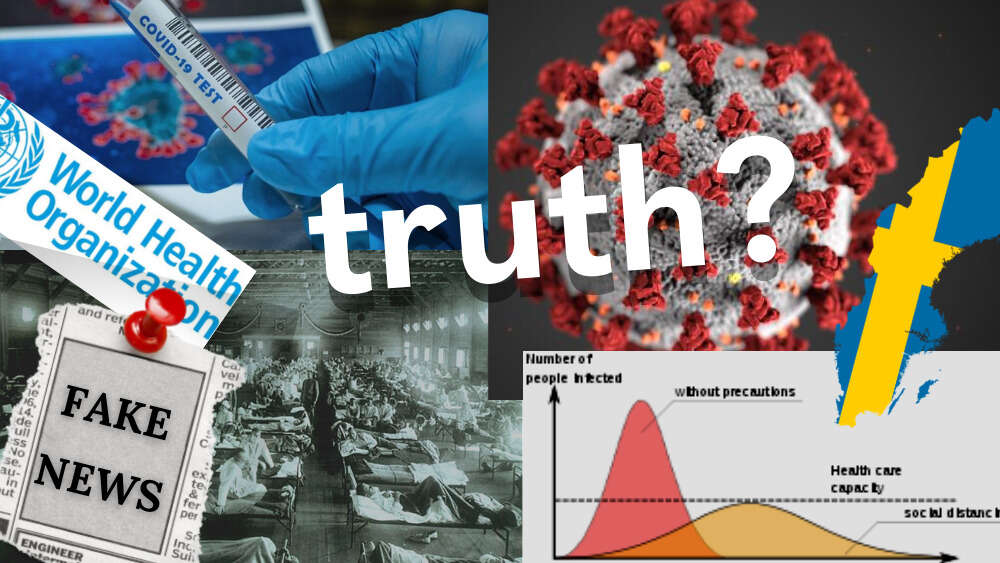Eternity asked Professor Raina MacIntyre – NHMRC Principal Research Fellow and Professor of Global Biosecurity at UNSW – some of the key questions about the severity and extent of COVID-19, as well as about how to seek reliable information. Professor MacIntyre also shared some other Christian testimony with us.
Professor MacIntyre heads the Biosecurity Program at the Kirby Institute, which conducts research in epidemiology, vaccinology, bioterrorism prevention, mathematical modelling, genetic epidemiology, public health and clinical trials in infectious diseases. Her research falls under four areas:
- Personal protective equipment,
- Vaccinology,
- Epidemic response and emerging infectious diseases, and
- Bioterrorism prevention.
ETERNITY: How does COVID-19 rank against other pandemics? What criteria are useful in determining the severity of a pandemic?
PROFESSOR MACINTYRE: The COVID-19 pandemic is similar to the 1918 pandemic – which had a case fatality rate of about 2-5 per cent, which is the same range seen today with COVID-19.
E: What evidence is there that the Australian and New Zealand lockdowns and other measures have been effective in combatting COVID-19, in comparison with Sweden (for example)?
PM: Australia and New Zealand are among the most successful countries in controlling COVID-19. Many people take our status for granted, because most of us have not been personally touched by COVID-19.
In the UK and US, most people have a friend or loved one who has been infected. In Sweden, the case fatality rate was much higher than in Australia, probably because the hospitals were stressed to capacity. Even in Victoria, we never ran out of ICU beds, and everyone who needed ventilation received it.
“We take for granted the wonders of modern medicine.” – Professor Raina MacIntyre
The Swedes intended to protect the frail and elderly – but the virus doesn’t do as we wish. It spread everywhere, and caused severe aged care outbreaks in Sweden. There were complaints from families that their loved ones were euthanised in aged care facilities in Sweden when they became infected.
In countries where hospitals were overwhelmed, as soon as they ran out of ICU beds and ventilators, the case fatality rate rose – it was 9-12 per cent in Spain, Italy and France, which is much higher than the 1918 pandemic. Perhaps [that is] a better comparison, as back in 1918 there were no ICU beds or ventilators – people with respiratory failure died.
We take for granted the wonders of modern medicine.
E: Where should the ordinary person look for reliable information about the pandemic? For example, claims persist that hydroxychloroquine should be used as a treatment for COVID-19 disease. How should claims such as these be evaluated?
PM: Look to health agencies such as the WHO or your national guidelines. We have very rigorous methods for approving drugs and vaccines. There is also the Oxford Centre for Evidence Based Medicine that provides evidence summaries on important topics.*
“This disease is nothing like influenza … The virus causes blood clots and affects the blood vessels very severely.” – Professor Raina MacIntyre
E: How do deaths from COVID-19 rank against other causes of death? How credible are claims that COVID-19 deaths relate in scale to lower flu deaths during the past few years? (A claim circulating is that COVID-19 is killing roughly the same number of elderly people as those who did not die during recent mild flu seasons)
PM: The case fatality from COVID-19 is much higher than for influenza.
We have seen a dramatic decline in influenza this year because of social distancing and other measures to control COVID-19. There is also evidence that many deaths from COVID-19 were not correctly diagnosed – this is because COVID-19 can present with heart attacks, strokes or heart failure.
This disease is nothing like influenza – there have been many cases of young people who do not have any respiratory symptoms suddenly having a heart attack or stroke due to COVID. The virus causes blood clots and affects the blood vessels very severely.
“My faith is private but central to my life and values.” – Professor Raina MacIntyre
E: For our particular audience, some information about any Christian connection is significant …
PM: My family was Methodist in Sri Lanka where I was born. When we migrated to Australia in 1973, when I was a child, the Uniting Church in Australia [merging Methodist and Presbyterian churches] had been formed. As a child, we attended Sunday school every week and did Bible studies.
I drifted away from religion in my 20s until my early 40s; not a rejection as such, but a preoccupation with other things. But I was drawn back to my faith about 15 years ago when facing some serious adversity. During that adversity, I had a dream about God, who I had not thought about for a long time.
In the dream, he asked me to pray to him and showed me the Lord’s Prayer in a different, unfamiliar script. I did not know what the script was that I saw in the dream, and initially thought it must be Hebrew. I searched on the internet to try and work out what the script was that I saw in the dream, and finally found it was Aramaic.
It gave me goosebumps to learn that Aramaic was the original language of Christ. My faith is private but central to my life and values.
* Editor’s note: An Oxford Centre for Evidence Based Medicine update on hydroxychloroquine is here.



